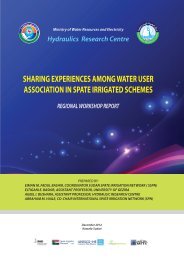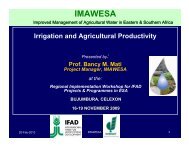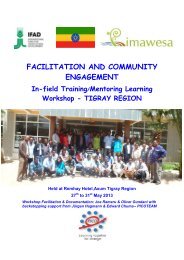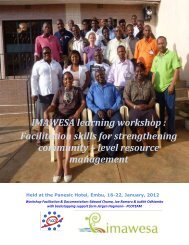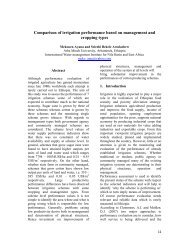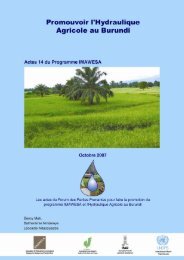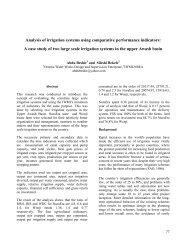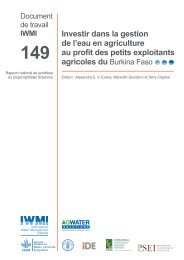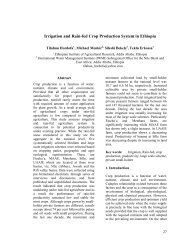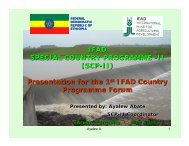Manual - Participatory rapid diagnosis and action ... - FAO.org
Manual - Participatory rapid diagnosis and action ... - FAO.org
Manual - Participatory rapid diagnosis and action ... - FAO.org
Create successful ePaper yourself
Turn your PDF publications into a flip-book with our unique Google optimized e-Paper software.
PRDA <strong>Manual</strong> 39• Purposive sampling: Select key-individuals who have a positionwith the local administration (Government Health Officer), farmers’<strong>org</strong>anization (Head of WUA), traders, or persons who have a goodknowledge of the local area/community (community leaders, schoolteachers, NGO workers, etc).In some areas the local Government or Head of WUA will provide you with alist of people to interview who, generally, are on a good footing with the localleadership. So try to also visit other farmers who are not on this st<strong>and</strong>ard list.For direct observations with your own eyes (for example during a transectwalk), it is important that you also visit (sample) both the head <strong>and</strong> tail endof the irrigation scheme.Cross-checkingThe aim of cross-checking or validation is to find out if the informationcollected is correct. This can be done by:• comparing different types of information sources (interviews,observations);• comparing the opinions of different people on one topic;• using information from wet <strong>and</strong> dry seasons <strong>and</strong> from different years;• using different PRDA tools to gather information about the sametopic but from different angles or perspectives. For instance, comparewhat people say about the WUA during the irrigation system map(perspective of water delivery) <strong>and</strong> the Venn diagram (perspective ofsocial <strong>org</strong>anization).Following up on contradictions is a very good way to get a better underst<strong>and</strong>ingof a situation. Contradictions between individuals in group discussions orbetween groups of farmers can expose hidden conflicts <strong>and</strong> differences infarmers’ objectives <strong>and</strong> strategies. Farmers’ opinions or choices that are incontradiction with the PRDA-Team members’ knowledge <strong>and</strong> experience donot necessarily mean the farmers are stupid or ignorant. Follow-up providesa good opportunity to learn from farmers <strong>and</strong> underst<strong>and</strong> the logic behindcontradictions.Preventing biasWhen doing a PRDA different people will give different importance orattention to different topics <strong>and</strong> interpret the same data differently. Forinstance, people working for the Irrigation Department do not always like



